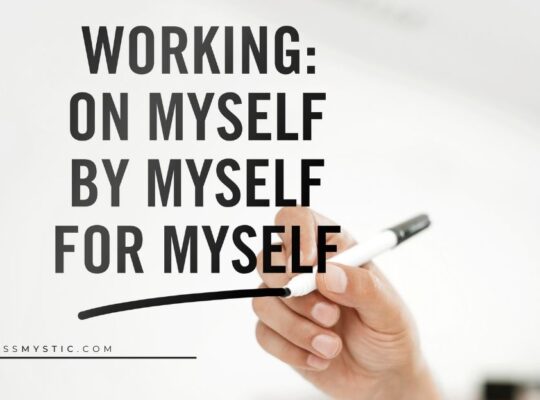In this article: The path from start to finish is littered with obstacles, will you break through?
If there is one lesson that comes early in life
If there is one lesson that comes early in life, it’s the one where we found out that achieving goals never comes easy. The path from start to finish is littered with obstacles, you will face hurdles you never anticipated, and you will question why you chose this path instead of the well- trodden one that would have been a cinch.
Pursuing anything is bound to come with setbacks, you will absolutely experience failure on the
way – especially if you’re building new habits, learning new skills or changing a big part of your
life. This should explain why you never keep your New Year’s resolutions.
Now, forget all that because you have (or could have) perseverance on your side. Those hurdles, struggles, and failures need not drain your motivation stores – they don’t have to force you out of the game before you really get started. If you have the right mindset then you can do anything – it sounds cliché, but it’s true.
Psychologists have been researching this for decades
and they have come to the conclusion that there are two mindsets (Mindset: The New Psychology of Success, Carol Dweck). Your mindset has a hand in determining just how you react when faced with failure, struggle, and annoying hurdles in your path.
On one hand, you have the mindset that leaves you discouraged, frustrated, and ready to give up.
On the other hand, you have a mindset that makes you more likely to push through and persevere.
There are a lot of staggeringly successful people in the world and many of them didn’t achieve that overnight. It took them years, sometimes decades, to get where they wanted to be. They dealt with setbacks, they went through rejections, they failed, but at no point did they down tools and walk away from their goal or dream. No, They kept going, they persevered. Ultimately, this is the difference between those who succeed and those who do not (barring those people who are born with a silver spoon in their mouths, who never really struggle, but just get given their success, though, that comes with its own issues).
What helps successful people maintain their success is their want to continue developing themselves, they want to learn more, do more, and they are constantly moving forward.
Mindsets: Growth or Fixed
What is your initial reaction when you hear words like creativity, talent, and intelligence?
For someone with a fixed mindset, these are qualities that you believe you are born with, and if you aren’t then there isn’t a whole lot you can do for yourself.
For someone with a growth mindset, these are viewed as abilities that can be developed. Whether it’s with education, practice, hard work or a combination of all three – people with growth mindsets believe they can learn. They can change and they’re willing to do so. Now, what do you think about traits like willpower, self-discipline, and grit?
For the fixed mindsets out there, it’s likely that you view these as static – they are what they are, and your upbringing or your genes had a say in whether you displayed these traits or were just one of the unlucky ones who wasn’t blessed with them.
Yet, people with a growth mindset see willpower, self-discipline, and grit as skills that can be honed – with practice – these are skills that can be developed, you can strengthen these as you move forward in life.
If we had to say one of the mindsets was right, well, science is on the side of the growth mindset group. We know from research that these skills are malleable (The grit effect: predicting retention in the military, the workplace, school and marriage, Eskreis-Winkler, et al).
Even when times are hard, the growth mindset can help you get through – it bolsters your motivation and drives your success.
A Fixed Mindset Erodes Motivation
Your brain is essentially a supercomputer and whether you realize it or not, it is monitoring everything that is going on around you, constantly, and your brain takes in that information, translates it, and decides what you need to do about it. This is part of our basic survival, but… it might also be the driving cause of your pain and suffering.
Particularly when your fixed mindset is doing the shaping. Why? Your brain wants to find meaning in, well, everything. So, when you hit a roadblock it’s suddenly all about what you did that caused this.
You have fallen into the trap of believing you might not have what it takes to do x, you’re just not good at y, and don’t even think about talking about z.
You’re shaking your head right now, thinking that this isn’t you – but, have you ever said (or thought) any of the following:
- I’m just not a creative person.
- I’m so terrible with technology.
- Math? Oh no, don’t ask me.
- I procrastinate, it’s what I do – I can’t get over it.
- I just can’t lose weight.
- I am too shy.
- I’m not athletic enough.
- Writing isn’t my thing.
- I’m just not talented enough.
- Self-discipline? Don’t make me laugh.
- Oh, I’m not athletic – no, I don’t do that kind of thing.
Let’s be clear here, there is a major difference between recognizing and acknowledging where your limitations and weaknesses lie. However, that isn’t what a fixed mindset is thinking – a fixed mindset is caught up in the belief that those skills, talents, and abilities are static – you can’t improve them, you can’t change them, you’re stuck where you are. If that’s the case, why bother? Just drop what you’re doing and choose something a bit easier.
If J.K. Rowling had a fixed mindset the world would never have had the Harry Potter books, and subsequently the films.
The same goes for Stephen King, we wouldn’t have been able to argue the finer points of the new IT movie because we never would never have had the first IT movie or the book for that matter.
The Growth Mindset Supports Motivation
When it comes down to interpreting failure (or challenge), the growth mindset processes things rather differently. One of the major reasons for this is that at the core of the growth mindset is the belief that all of these talents, skills, and abilities are malleable, so you can take steps to improve them. While the fixed mindset has fallen into the trap of believing these are your permanent limitations.
A growth mindset sees them as merely starting points, something you can use to determine where you can focus your energy to develop yourself as a person, whether personally, professionally or in another area of your life. Instead of viewing challenges, setbacks, and failure as a sign to throw a flag on the play, a growth mindset accepts that this is just a healthy part of growing as a person and pursuing achievement.
So, if you’re looking to increase your motivation levels your starting point should be to analyze your mindset and determine what steps are necessary for you to nurture your own growth mindset.
Which Mindset Do You Have?
Success doesn’t come easy. When you finally achieve your goals, you will look back on the path you took to get to the point and you will see that it is littered with countless setbacks, obstacles, and failures… but here you stand, triumphant. Why? Perseverance. You found a way to cut through the trees to see the forest.
Your mindset is your choice – you can stay stuck with your fixed mindset and use your current circumstances as evidence that you’re right about your shortcomings, that you were right when you said I can’t.
Or, you can shake things up and embrace the growth mindset to guide your focus toward development and success. The growth mindset is always the right choice – but once you choose it, how do you get it?
Growing The Growth Mindset
A New Belief
Change your thoughts on abilities, talents, and skills, and start reminding yourself regularly that these can be honed if only you apply yourself to practice and improve on them.
Change Your View Of Failure
Okay, no one likes to fail – it doesn’t feel good. Stop seeing failure as a character flaw. Take your failure and understand where you went wrong and what you can do to ensure that it doesn’t happen again. Failure is a learning experience, not the end of the world. Success is a process.
Build Self-Awareness
Do you know where your strengths and weaknesses lie? Of course, it’s important that you know what skills, talents, and abilities that you possess. It’s also important that you’re aware of your weaknesses – and while we refer to them as weaknesses, you should instead view them as opportunities. These are areas where you can invest time to improve your skills. If you aren’t sure where your opportunities are, ask some people close to you for a bit of guidance.
Embrace Learning
Have you ever noticed that children are constantly impressed when they learn something new? They seem to have their minds blown on a daily basis – at what point did you lose that feeling? Because be honest, you still learn new things, but as we get older we start to feel like we should just know certain things, so we try to act calm and cool about learning. Well, don’t – get excited about learning new things. Be curious, ask questions, and embrace learning.
A Challenge Is Your Friend
Nothing comes without a challenge, so when you decide to undertake a new journey you should expect to come across obstacles and roadblocks. Don’t allow them to frustrate you, instead see them as your friend, they’re part of the learning process – this is your opportunity to shine.
23 Tips To Grow Perseverance
Okay, now you know how important the growth mindset is and how you can develop yours, this should help you with your perseverance problem. What if your mindset isn’t the problem, what if you do believe you’re capable, but you’re having trouble making things stick? We’ve compiled some top tips to improve your ability to persevere.
While the path to success may be difficult and achieving your dreams will be hard work, the feeling of overcoming those challenges to finally reach your goal is second to none. It makes all those rejections, stumbles, detours, roadblocks, and challenges worthwhile. They couldn’t break you down, instead, you used them to constantly rebuild yourself and be better.
Remember, perseverance is an ability that you can improve on, it isn’t a personality trait. You can make the choice to dig deeper and fight back when the world seems to be against you. You can choose to overcome the fatigue and loss to overcome. You can choose to take courage and persevere.
1| Hard Work
This should go without saying, but we’ll say it anyway. Especially since there are so many marketers out there looking to convince you that you can strike it rich with little effort if you just join them on their journey (these types of offers tend to be pyramid schemes). Everything good in life requires hard work – from the career you want to happy relationships – hard work is necessary. So, how hard have you been working?
2| Stifle Resistance
Unfortunately, your brain will trigger a fight or flight response for just about anything. It actively tries to corner you in your comfort zone – it’s safe here, doesn’t it feel nice? Do you want to feel nice or do you want to feel amazing? You’re not smart enough to do that. That idea is nothing new. You’re not good enough. You don’t deserve that. That is your voice is resistance, and if you want to persevere you will need to learn how to stifle it.
3| Action
No idea will come to fruition if you don’t put it into action. So, if you want to be a writer then you need to start writing. If you want to be a musician, then you need to start practicing your music. If you always wanted to be a doctor, then you need to go to med school. Instead of talking about what you’re going to do… take the necessary steps to do it.
4| Be Enthusiastic
When you know what you’re chasing it’s easier to maintain high spirits. So, place reminders around your home and office to ensure you can stay on track. It isn’t just about being enthusiastic, maintaining your enthusiasm is just as important. So, if your dream is to write a novel create a book cover and hang it on your fridge, put it next to your computer, hang it from the mirror in the bathroom. Find ways to remind yourself of your goal that will help you feel inspired.
5| Get Creative
It’s okay to find people who inspire you, but that doesn’t mean you should be copying them. You are yourself, so don’t be afraid to take risks and do what no one else has done before. It’s time to get creative, and that means putting yourself in positions you wouldn’t have been in before. It means networking with people who can help you get to where you want to be – it’s all about pushing yourself out of your comfort zone.
6| Be Accountable
It’s easy to fall into the trap of making excuses and passing blame to someone else. Instead, you should be accountable for your own actions. Stop complaining, quit whining, and start doing
7| Just One More
When you reach a point where you think it’s time to quit push yourself to do just one more thing, whether it’s a phone call, a video, a page or even a paragraph. Just push yourself that little bit further.
8| Let It Go
Let’s take a look at your bad habits – where it is that you lose the most time that you could be using for valuable progress? Are you guilty of checking your phone throughout the day or maybe checking your email too often? Whatever it is, eliminate your distractions – whether it’s a video game or drinking a bit too much too early every night. Take the energy you’re wasting on those things and gift it to chasing your dreams.
9| Prepare
The best way to face your day is having prepared for it – so, get up earlier so you have time to eat breakfast, get ready with plenty of time, and then dedicate 5- 10 times of time for yourself. You can spend time with your journal, just quietly sit or meditate. Whatever you choose to do, do so to provide yourself with a bit of clarity before you embark on your day. Then choose the biggest and most important tasks you have to do for the day and tackle them first. Give them your full focus
10| Support
Having a strong support network is important and it shouldn’t just be made up of friends and family, though they are important. You should also network with people who are trying to do the same thing as you are – it helps if you hang out with people chasing the same dream, especially when they’re upbeat, positive types.
11| Self-Care
You won’t get far if you don’t look after yourself – so make sure you take time to eat well, that you make time to exercise, that you take breaks, that you make time for the hobbies you enjoy (that includes video games and even a cocktail), and whatever you do – don’t get caught up dwelling on your mistakes. Finally, be sure that you spend time with your loved ones – those relationships are important to your overall health and happiness and chasing your dream shouldn’t mean shortchanging those relationships.
12| Curb Your Worries
We all worry, yes, but worry seriously affects your focus. So, remember that a lot of the worries you are experiencing aren’t real – your mind is creating problems for you, but in reality… there’s nothing in it. We often jump to the worst-case scenario and seem to live it out in our minds when they are unlikely to ever come to pass. So, curb your worries quickly.
13| Tame Technology
We live in a world that is constantly connected and because of that we often struggle to create (and stick to) boundaries. You don’t have to look at your phone every single time it buzzes with a notification. When you’re working you should put it on silent, stick it on airplane mode or just turn it off (it depends on how distracted you are by it).
You should also avoid constantly checking your email – you can tell yourself it only takes a few seconds, but what it does is break your focus and then when you return to what you’re doing your mind needs time to refocus.
14| When Checklists Help
If your to-do list often features the same activities why not create a standard template with those common tasks already included and then you can easily slot in new activities. Life is much easier when you simplify where possible.
15| The Right Questions
Are you tired of getting the same answers? It’s time to start asking different questions – you’d be surprised at what happens when you start asking yourself (and others) the right questions. You could be limiting your responses by limiting your questions.
16| Question Yourself
Before your day draws to a close ask yourself what you did to create a positive impact for someone today. If you haven’t, then do it.
17| Don’t Try
This is a common mistake we make – we get so caught up in our negative thoughts we utter those fateful words I’ll try. No, you either do it or you don’t. It’s as simple as that – so stop using the word try, you’re automatically undermining yourself by saying this. You’re giving that thought breath it doesn’t deserve and setting yourself up for failure.
18| You Get What You Give
Start expecting the best from yourself in every situation, and from others, too. Your success is rooted in your expectations, so start thinking bigger and better.
19| Be SMART
You’re probably more than familiar with this term. It’s all about setting goals that you can achieve. So, every goal should be specific, it should be measurable, attainable, and more importantly, it should be realistic and timely.
The latter is particularly important because if you don’t stamp a timeframe on it you’ll just keep pushing it back. Additionally, your goals should be valuable to you, they should fall in line with your values/beliefs, and there should be some element of risk involved. Remember, you’ll never get anywhere living in your comfort zone.
20| The Plan
Before you act, you must first plan. Creating a SMART goal is step one and step two is creating the plan you will follow to achieve those goals. You don’t just create a plan and proceed, you should regularly revisit your plan and change it as necessary, it should be adaptable and flexible, and it’s a continuous process until you achieve your goal. So, create milestones to celebrate and upon achieving each one you should revisit your plan and make tweaks where necessary. Part of planning also means identifying the possible issues that may crop up on your path and making a plan on how best to tackle them.
21| Milestones
You can only move one step at a time, so why on earth are you creating a goal without considering each and every step you need to take to reach it? Milestones are the key to maintaining motivation and persevering to the end.
22| You Must Increase
Increase your abilities, hone your skills, grow your knowledge – remember, these are all malleable things you can develop and hone. So, what are you waiting for? You can tackle something different every day or work away at one particular thing until you see improvements. The key is to commit yourself to doing it and keep with it until you get to where you want to be.
23| Optimism
What better way to fuel your motivation and persevere than with holding positive expectations for your goals? How can you persist when you have a gloomy Gus approach to everything? Be mindful about your self-talk and when you find yourself thinking negatively make the choice to change those thoughts into positives. Start anticipating victory instead of letting worry convince you failure is the only option. Failure isn’t an option unless you let it win.
People who persevere almost always reach their success – it doesn’t matter what your goals are, what matters is that you persist. With persistence and perseverance, there is success. Just think about what perseverance in life has already done for you – in addition to learning how to walk and talk, you learned how to read and write – you graduated high school, you got your first job.
Final Thoughts
These are all milestones that we achieve, but we have to persevere to get there – you faced frustration and you probably felt like giving up, but that wasn’t an option was it? So, why would giving up be an option now? Choose perseverance.







